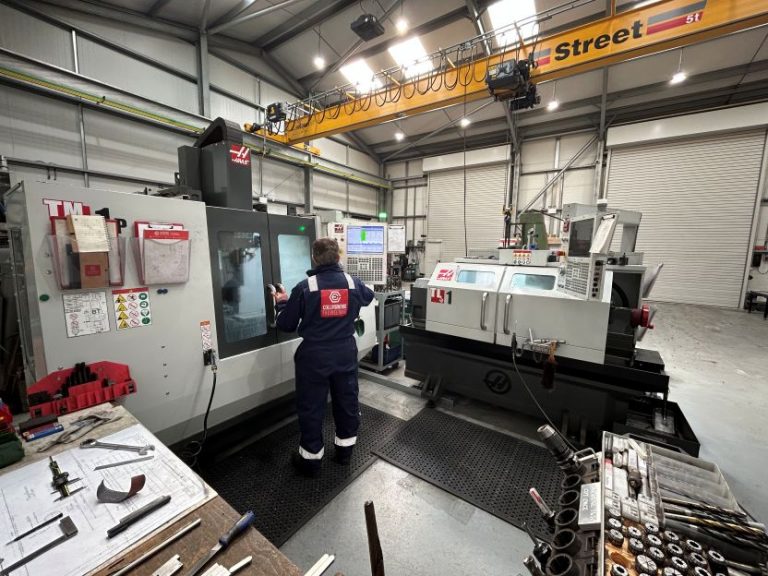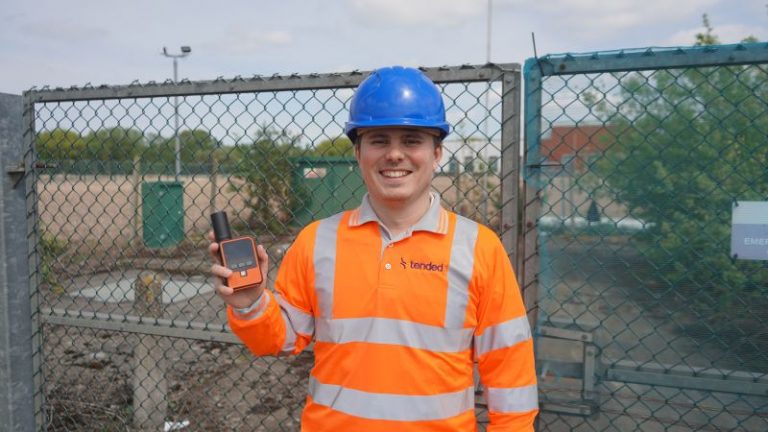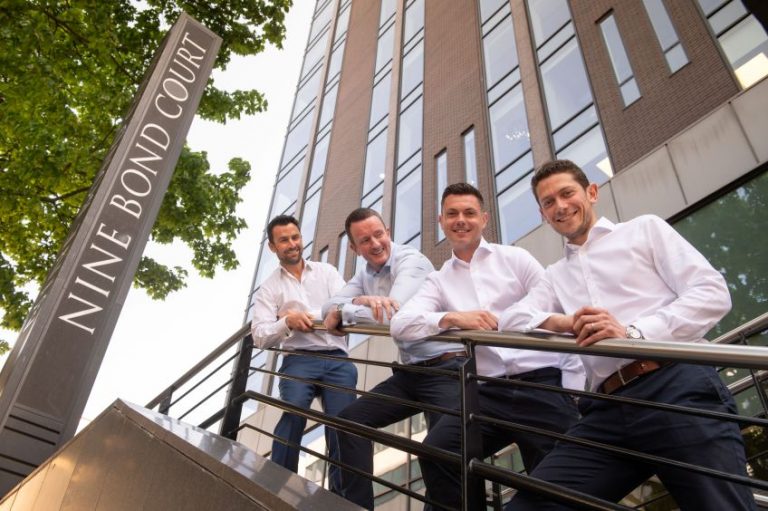Collingwood Engineering boost capabilities and workforce with a UKSPF capital grant
Lincoln railway safety tech start-up secures £2m investment
Quickline opens Leeds hub to accelerate rural broadband and skills growth
Internet provider Quickline has launched a new operational and training facility in Leeds to support the expansion of high-speed broadband in rural areas across Yorkshire.
The site will be key in Quickline’s delivery under Project Gigabit, a government-backed initiative to connect remote communities with gigabit-capable broadband. The new hub is intended to streamline logistics and reduce travel for field engineers, improving operational efficiency and lowering carbon emissions.
In addition to functioning as a logistics centre, the facility includes a purpose-built training centre for apprentices and a dedicated space for student engagement. The focus is on building skills in STEM and digital literacy to prepare future workers for careers in telecoms and infrastructure.
The investment highlights the growing role of regional infrastructure in supporting national digital goals and creating pathways for workforce development in underserved areas.
Volkswagen shuts down Heycar after heavy losses
Volkswagen Financial Services is closing down its used car platform Heycar after years of mounting losses and weak revenue.
Launched in the UK in 2019 to rival Auto Trader and Motors, Heycar never gained market traction. It reported a £30 million loss in 2022 and £22.4 million in 2023, with revenue falling to just £7.4 million.
The platform, which listed nearly 100,000 vehicles, will shut down operations in Germany by mid-May, with the UK business expected to follow. Around 126 staff, mostly in the UK, are at risk of redundancy.
VWFS plans to reuse Heycar’s technology in a new venture focused on digital tools for the automotive sector. Dealerships using Heycar will need to move listings to other platforms or their own sites.
UK firms rush into AI adoption amid skills gap and regulatory risks
UK businesses are rapidly integrating artificial intelligence tools into their operations, with adoption doubling from 9% in 2023 to 18% by early 2025, according to the Office for National Statistics. Among larger employers, nearly one in three are now using AI technologies. However, this surge in uptake is unfolding without the in-house expertise to understand or manage the systems being deployed fully.
This trend is occurring against the backdrop of a severe digital skills shortage, which government figures estimate is costing the UK economy £63 billion annually. The gap in technical knowledge is particularly problematic in regulated industries—such as finance, insurance and healthcare—where decisions must be traceable and justifiable to both customers and regulators.
Many AI systems being implemented rely on self-learning algorithms that process large volumes of data to identify patterns and generate predictions. While powerful, these models often lack transparency. They produce results without a clear rationale, making it difficult for businesses to explain or challenge their outputs. This presents a significant compliance risk in regulated sectors, primarily when decisions affect credit approval, medical outcomes, or employee assessments.
There is growing concern that businesses may unknowingly introduce invisible errors into their operations. Without the ability to audit or interpret how an AI model arrives at a decision, firms could miss critical mistakes or fail to correct them in time. Regulators are also tightening their expectations, demanding that automated systems be able to provide clear, auditable justifications for their decisions. At the same time, employees and customers increasingly resist accepting AI-driven outcomes that appear arbitrary or lack human oversight, putting overall trust in the technology at risk.
In response, some research teams are working on ways to make AI more transparent and accountable. They focus on developing tools to explain how models work, flag potentially harmful decisions, and ensure human oversight remains in place for high-impact cases. These initiatives aim to help businesses draw clearer boundaries around AI use, reduce the risk of misuse, and align with regulatory expectations.
Kingsmill and Hovis merger talks signal major shake-up in UK bread sector
Associated British Foods (ABF), owner of Kingsmill, is in advanced discussions with private equity firm Endless LLP, which owns Hovis, over a potential merger that would unite two of the UK’s largest bread producers.
The move is part of ABF’s strategic review of Allied Bakeries, its struggling bakery division. Allied Bakeries has faced mounting pressure from inflation, changing consumer behaviour, and increasing competition. The division also includes the Allinson’s and Sunblest brands and operates a nationwide network of bakeries and depots.
Hovis, which has traded under private equity ownership since 2020, would represent a major addition to ABF’s bakery portfolio. The merger would position the combined business as a formidable competitor to Warburtons, the current UK market leader.
Given its potential impact on market concentration, any deal is likely to face scrutiny from the Competition and Markets Authority. The government has been reviewing the CMA itself, which recently removed its chairman to refocus the regulator on growth-oriented oversight.
University of York to establish campus in India to target business and tech sectors
The University of York is set to expand its global footprint by opening a campus in Mumbai, India, following the signing of a memorandum of understanding with Maharashtra’s Chief Minister. The new campus is slated to open by the 2026/27 academic year, subject to approval from India’s University Grants Commission.
Initially, the campus will offer undergraduate and postgraduate degrees focused on high-demand areas such as computer science, AI, cybersecurity, business, economics, and creative industries. The courses will follow the same curriculum as those taught at the university’s UK campus, and students will earn a University of York degree upon graduation.
The initial phase will take place in a business district building in Mumbai, with plans to develop a fully-fledged campus over the following years. This expansion aligns with York’s ambition to contribute to India’s growing educational sector, particularly in preparing the next generation of business leaders and tech professionals.
Duo of new partners appointed at Knight Frank’s Leeds office
Bradford nursery changes hands after 25 years
Rainbow House Private Day Nursery in Bradford has been sold after 25 years of continuous ownership. The nursery, which offers places for up to 88 children, is situated in Low Moor and has built a strong reputation in the local childcare sector.
The business was acquired by The Little Academy Day Nursery, a growing operator that already manages two other settings in West Yorkshire. The sale was managed by Christie & Co and attracted multiple offers, reflecting ongoing demand in the region’s childcare market.
The former owners exited the business to retire, with the new operator expected to maintain continuity of service while expanding its footprint in the area.
Heineken investment breathes new life into struggling Yorkshire pubs
Heineken’s Star Pubs division is making significant inroads in revitalising Yorkshire’s struggling pub sector, with two key sites reopened following major investment. The Westgate in Halifax and The Black Bull in Ecclesfield, Sheffield, are now operating successfully after receiving financial backing as part of a larger nationwide initiative.
Star Pubs, part of the Heineken group, has pledged £40 million to upgrade and reopen pubs across the UK in 2025, with £2.64 million of that funding allocated specifically to Yorkshire. Licensees in the region are contributing an additional £434,000, reflecting growing optimism in the sector. The investment is projected to generate approximately 76 new jobs in Yorkshire and nearly 1,000 nationwide.
The Westgate reopened in March 2025 after a six-year closure, following a £325,000 refurbishment. The Grade II listed building has been modernised while preserving its heritage features and now caters to both post-work customers and weekend visitors in central Halifax. Six new jobs have been created, and the pub’s popularity has surged, driven by live sports events and a planned schedule of entertainment.
In Sheffield, The Black Bull reopened in August 2024 after being closed for 18 months. It underwent a £198,000 transformation into a modern, family-friendly venue, complete with a garden, dedicated games room, and entertainment programme. Ten jobs were created as part of the relaunch. The interior redesign features distinct spaces catering to various customer needs, including a lounge, social bar area, and sports-focused games room.
The upgrades reflect a broader strategy by Heineken to target underperforming assets with growth potential, particularly in community-focused locations. The model relies on leasehold agreements and co-investment from experienced operators, signalling a scalable route for reinvigorating on-trade venues.












